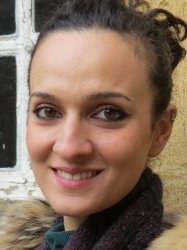Studying at the University of Verona
Here you can find information on the organisational aspects of the Programme, lecture timetables, learning activities and useful contact details for your time at the University, from enrolment to graduation.
Academic calendar
The academic calendar shows the deadlines and scheduled events that are relevant to students, teaching and technical-administrative staff of the University. Public holidays and University closures are also indicated. The academic year normally begins on 1 October each year and ends on 30 September of the following year.
Course calendar
The Academic Calendar sets out the degree programme lecture and exam timetables, as well as the relevant university closure dates..
| Period | From | To |
|---|---|---|
| primo semestre (lauree magistrali) | Oct 5, 2020 | Dec 23, 2020 |
| secondo semestre (lauree magistrali) | Mar 1, 2021 | Jun 1, 2021 |
| Session | From | To |
|---|---|---|
| sessione invernale | Jan 11, 2021 | Feb 12, 2021 |
| sessione estiva | Jun 7, 2021 | Jul 23, 2021 |
| sessione autunnale | Aug 23, 2021 | Sep 17, 2021 |
| Session | From | To |
|---|---|---|
| sessione autunnale (validità a.a. 2019/20) | Dec 9, 2020 | Dec 11, 2020 |
| sessione invernale (validità a.a. 2019/20) | Apr 7, 2021 | Apr 9, 2021 |
| sessione estiva (validità a.a. 2020/21) | Sep 6, 2021 | Sep 8, 2021 |
| Period | From | To |
|---|---|---|
| Vacanze di Natale | Dec 24, 2020 | Jan 6, 2021 |
| Vacanze di Pasqua | Apr 3, 2021 | Apr 6, 2021 |
| Vacanze estive | Aug 9, 2021 | Aug 15, 2021 |
Exam calendar
Exam dates and rounds are managed by the relevant Economics Teaching and Student Services Unit.
To view all the exam sessions available, please use the Exam dashboard on ESSE3.
If you forgot your login details or have problems logging in, please contact the relevant IT HelpDesk, or check the login details recovery web page.
Should you have any doubts or questions, please check the Enrollment FAQs
Academic staff
 mariacaterina.baruffi@univr.it
mariacaterina.baruffi@univr.it
 laura.chiaramonte@univr.it
laura.chiaramonte@univr.it
 mauro.cortese@univr.it
mauro.cortese@univr.it
 cecilia.mancini@univr.it
cecilia.mancini@univr.it
 martina.menon@univr.it
martina.menon@univr.it

Vannucci Virginia
 virginia.vannucci@univr.it
virginia.vannucci@univr.it
Study Plan
The Study Plan includes all modules, teaching and learning activities that each student will need to undertake during their time at the University.
Please select your Study Plan based on your enrollment year.
1° Year
| Modules | Credits | TAF | SSD |
|---|
2° Year activated in the A.Y. 2021/2022
| Modules | Credits | TAF | SSD |
|---|
| Modules | Credits | TAF | SSD |
|---|
| Modules | Credits | TAF | SSD |
|---|
| Modules | Credits | TAF | SSD |
|---|
Legend | Type of training activity (TTA)
TAF (Type of Educational Activity) All courses and activities are classified into different types of educational activities, indicated by a letter.
Mathematical finance (2020/2021)
Teaching code
4S001142
Teacher
Coordinator
Credits
9
Language
Italian
Scientific Disciplinary Sector (SSD)
SECS-S/06 - MATHEMATICAL METHODS OF ECONOMICS, FINANCE AND ACTUARIAL SCIENCES
Period
secondo semestre (lauree magistrali) dal Mar 1, 2021 al Jun 1, 2021.
Learning outcomes
The course offers an introduction to arbitrage theory and its applications to financial derivatives pricing in discrete and continuous time.
Program
1. Discrete market models
Uniperiod models: binomial and general. Multiperiod models: binomial and general.
Financial portfolios, the principle of non-arbitrage.
Derivatives: definition, examples, properties.
Absence of arbitrage.
Discrete-time martingale processes
Equivalent martingale measures and risk neutrality.
Numeraire
Replicable securities and valuation of derivatives
Completeness of the markets
The return of risky securities
The two fundamental asset pricing theorems
2. Market models in continuous time
Transition from discret to continuous times.
Geometric Brownian motion and modeling of empirical data
Risk quantification with a model
Ito Integral Ito, quadratic variation / covariation,
stochastic differential equations, characterization of martingales
Ito Lemma
Market model with n + 1 assets and m Brownian motions
Self-financing portfolios
Absence of arbitrage
Girsanov's theorem
Equivalent martingale measure
Replicability and pricing of derivatives
Completeness and EDP for the price function of a derivative
Delta hedging
Black and Scholes model
Formula for the price of call and put options
Useful material on the moodle page of the course: slides of the lessons, link to the notes on OneNote, exercises
Important knowledge for a successful learning: matrix calculations, linear systems, real functions of one or more real variables (in particular: continuous functions, composition of functions, partial derivatives), basic concepts of financial mathematics (interest rate, return of an investment, difference between bonds and shares of a firm), fundamental concepts of probability theory (sigma algebra, random variables, expected values, covariance, space L ^ 2 of rv, independence, conditional probabilities and expected values, equivalent probability measures, probability density, distribution function, Gaussian law, convergence in distribution, in probability, in L ^ 2, almost certain equality), basic concepts on stochastic processes (martingale, Brownian motion)
Preparatory courses: Mathematics, Financial Mathematics, Stochastic processes
Skills necessary for successful learning: willingness and ability to conduct logical reasoning in a rigorous way, and to motivate each step and the conclusions
Organization of teaching activities: lessons, exercises
| Author | Title | Publishing house | Year | ISBN | Notes |
|---|---|---|---|---|---|
| T. Bjork | Arbitrage theory in continuous time (Edizione 3) | Oxford University Press | 2009 | 978-0-199-57474-2 | |
| F. Menoncin | Mercati finanziari e gestione del rischio | Isedi | 2006 |
Examination Methods
The exam consists of a written test. Also an oral examination could be compulsory, in case the teacher needs for specific insights
The written test consists of practical exercises and theoretical questions, and can cover the whole programme of the course. Using notes or books or similar material during the test is forbidden
The exam is not passed if the mark in the written test is less than 18/30.
In case of oral exam, the mark may become insufficient if inconsistencies are found with what is written. The mark score may increase if parts of exercises have not been evaluated for doubt of interpretation. Requests for further questions to increase the score are not accepted. The adequacy of requesting the necessary clarifications will be established only by the teacher.
Characteristics of the expected performance. The student is required to demonstrate a critical and in-depth knowledge of the topics covered in the course. The concepts must not be exposed mechanically but in a reasoned way, the student is expected to be able to recognize when a formula obtained for a specific example is not appropriate for the case she has to deal with. Connections among different parts of the program may be required and advanced level exercises can be (marginally) proposed.
The concise but comprehensive exposure, the rigor, the direct pointing towards the core of the matter will be particularly appreciated. Vague, inaccurate, poorly detailed or incorrect answers will be penalized
Students not attending the lectures: the examination methods are not differentiated between attending and non-attending students
The exam will be organized either as remote quiz or as written test in class. Since for the whole academic year 2020/21 the remote modality must be guaranteed for all students who request it, students wishing to adopt the remote modality are therefore strongly encouraged to notify as soon as possible.
At the closure of the exam registration list, the participants will be notified if the exam will be in presence or not.
The next exam (13-1-2021) will be in the form of a quiz on the web: 4-5 exercises, exactly as for a usual written exam.
For further details about the exam see the forum at the moodle page
Type D and Type F activities
| years | Modules | TAF | Teacher |
|---|---|---|---|
| 1° 2° | Future matters | D |
Alessandro Bucciol
(Coordinator)
|
| 1° 2° | Future matters | D |
Alessandro Bucciol
(Coordinator)
|
| years | Modules | TAF | Teacher |
|---|---|---|---|
| 1° 2° | The fashion lab (1 ECTS) | D |
Maria Caterina Baruffi
(Coordinator)
|
| 1° 2° | The fashion lab (2 ECTS) | D |
Maria Caterina Baruffi
(Coordinator)
|
| 1° 2° | The fashion lab (3 ECTS) | D |
Maria Caterina Baruffi
(Coordinator)
|
| years | Modules | TAF | Teacher |
|---|---|---|---|
| 1° 2° | Design and Evaluation of Economic and Social Policies | D |
Federico Perali
(Coordinator)
|
| 1° 2° | Public debate and scientific writing - 2020/2021 | D |
Martina Menon
(Coordinator)
|
| 1° 2° | Wake up Italia - 2020/2021 | D |
Sergio Noto
(Coordinator)
|
Career prospects
Module/Programme news
News for students
There you will find information, resources and services useful during your time at the University (Student’s exam record, your study plan on ESSE3, Distance Learning courses, university email account, office forms, administrative procedures, etc.). You can log into MyUnivr with your GIA login details: only in this way will you be able to receive notification of all the notices from your teachers and your secretariat via email and soon also via the Univr app.
Graduation
List of theses and work experience proposals
| theses proposals | Research area |
|---|---|
| Tesi di laurea magistrale - Tecniche e problemi aperti nel credit scoring | Statistics - Foundational and philosophical topics |
| Fattori ESG e valutazione d'azienda | Various topics |
| Il metodo Monte Carlo per la valutazione di opzioni americane | Various topics |
| Il Minimum Requirement for own funds and Eligible Liabilities (MREL) | Various topics |
| L'acquisto di azioni proprie | Various topics |
| Proposte Tesi A. Gnoatto | Various topics |

 045 802 8224
045 802 8224






















